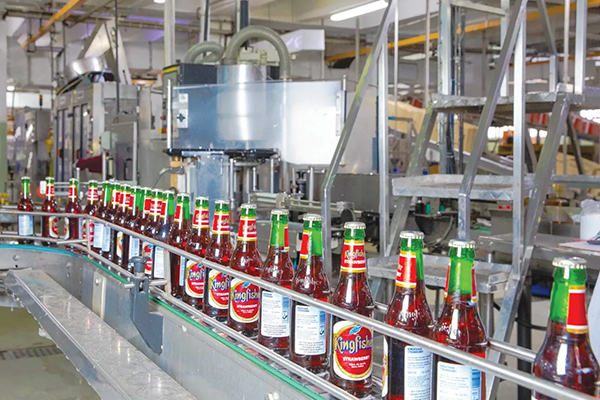#9
KWAL
The ’60s were a defining moment for Kenya. Not only did the country gain independence in 1963, but six years later, Kenya Wine Agencies (KWAL) was established as the first fully government-owned beverage company. No doubt, KWAL has a special place in Kenya’s history.
The establishment of KWAL was through the Industrial and Commercial Development Corporation (ICDC) that has since become the Kenya Development Corporation (KDC).
Following its establishment, KWAL has expanded its offerings to include a wide range of products within its portfolio such as wine, ciders, vodka, gin, whisky, and now beer.
The company manufactures most of its products locally and in the process, creates jobs, supports livelihoods, and benefits many in the value chain.
More than half a century later, KWAL has weathered the storms, stood the test of time and grown to become one of the biggest beverage brands in the region. A brand made in Kenya, for Kenyans.
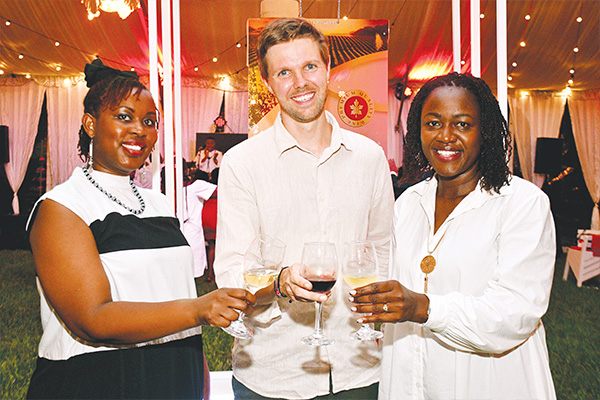
In 1982, KWAL set up a commercial winery, the first of its kind in Kenya. The company then started importing and growing grapes that were fermented and crafted locally. Among them is the popular Kingfisher fruit wine which was launched in October 1982 and went on to become KWAL’s flagship brand.
KWAL is also home to renowned brands such as Heineken, Viceroy, Savanna, Nederburg, Durbanville, Hunters cider, Kibao, Caprice and Altar wine.
Fast forward to 2015, KWAL achieved another milestone. The Privatisation Commission finalised the sale of a 55 percent stake held by ICDC in KWAL through its holding company KWAL Holdings East Africa (KHEAL), to Distell Group, Africa’s leading producer of wines, spirits and brandy.
Indeed, the privatisation was a turning point. Under the leadership of the then Managing Director (MD) Carlos Gomes, KWAL doubled its volume output and significantly improved its bottom line. Since then, KWAL’s fortunes and trajectory has been on the rise with the company attracting strategic investors.
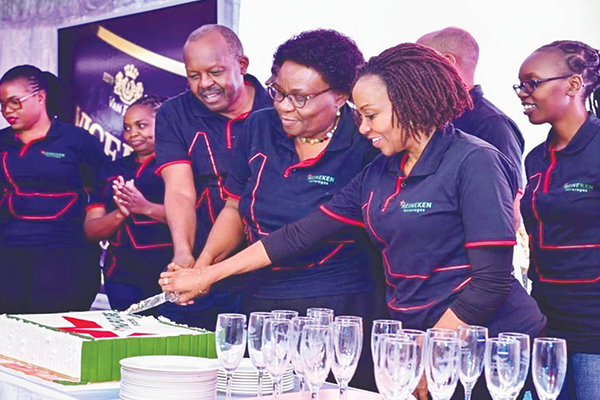
Following her appointment in October 2018, KWAL MD Lina Githuka’s resilience, passion for excellence and experience has guided her to see KWAL through key transitions. Some of these include the successful management during the global COVID-19 pandemic and the seamless integration with HEINEKEN Beverages in 2023 after the acquisition of Distell. Heineken Beverages currently owns a 55 percent stake in KWAL.
To date, KWAL has extended its reach within the broad value chain with its footprints expanding to distributors, wholesale and retail outlets. “We provide jobs to over 400 persons in the form of direct employment and contractual engagement, with over 500 suppliers across our value chain,” Lina Githuka opines.
Anchored on supporting the local manufacturing agenda and increasing its local production capacity, KWAL invested KES 5 billion in the development of an ultra-modern manufacturing facility in Tatu City, Kiambu County, which also serves as KWAL’s head office. As a trailblazer on many fronts, the company achieved a milestone by being the first Kenyan company to be 100 percent locally financed on such a scale.
The Tatu plant has been built with a focus on conservation, aiming to realise key United Nations Sustainable Development Goals (UN SDGs). Specifically, it targets SDG 7 ‘Affordable and Clean Energy’, and SDG 12 ‘Responsible Consumption and Production’, all in alignment with the company’s strategic plans.
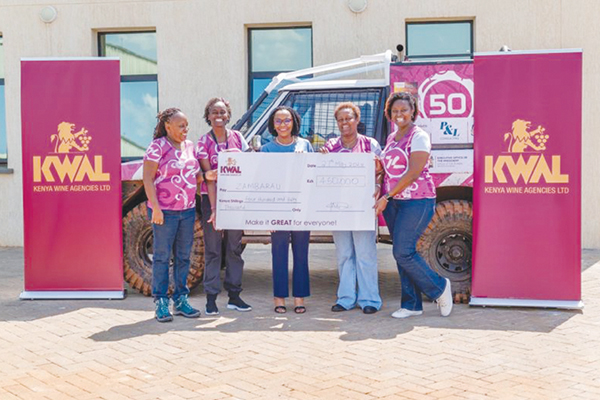
At KWAL, employees are the core of the company with various initiatives put in place to ensure the holistic growth of employees.
The company is intentional in improving employee wellness. Two platforms, Women Chat Lounge and Bro Code have been established to serve as avenues for mentorship among the ladies and the gentlemen respectively.
Moreover, The Good Vibes Bar, which is an in-house bar, was opened in June 2024 to provide an avenue for employees to unwind.
Additionally, the company has a fully stocked Resource Center where employees can access a variety of books and board games for their enjoyment.
As part of enhancing social impact, KWAL has partnered with various organisations across Kenya that are advancing positive social impact in the community.
For instance, KWAL is a partner in the INUA Program, a tripartite collaborative vocational training initiative with Mukuru Promotion Center and the Tamarind Group. This program targets youth from informal settlements, aiming to upskill them in culinary arts. In March 2024, KWAL committed to this cause by signing a Memorandum of Understanding (MoU), investing KES 10 million over three years. KWAL will sponsor and facilitate the trainees’ activities at Mukuru Promotion Center.
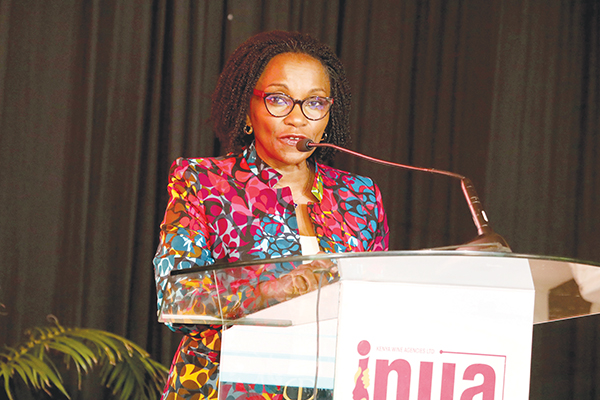
As part of its conservation agenda, in June 2024, KWAL sponsored the Zambarau 50 Ladies Team, participating in the annual Rhino Charge competition, which supports the conservation projects of various areas including the Aberdare Forest, one of Kenya’s important water catchment areas.
KWAL also commemorated International Women’s Day in 2024 by sponsoring FIDA’s annual golf tournament, which raised funds to support survivors of gender-based violence.
As KWAL continues to forge ahead, navigating new territories and embracing future challenges, it remains poised to redefine the standards of success in the dynamic world of beverages and beyond.
Going into the future, the company affirms its commitment to #MakeItGreatForEveryone and the promise to continue being the home of the country’s favourite brands.


